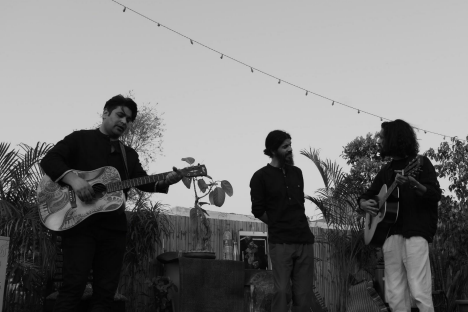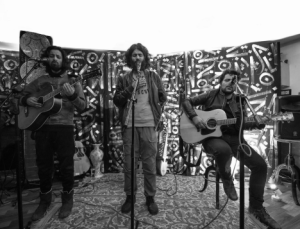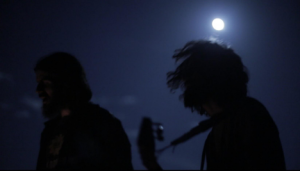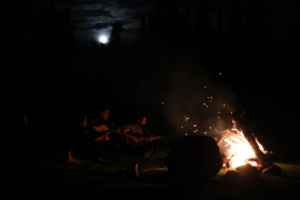The music we create or the position from which that music is created is intimately personal. It is those afflictions, griefs, worries, and hopes—that strike us most personally and feel inexplicable in any other form—that we express through our music. It is an expression of our own triviality in the face of overwhelming realities we are faced with on a daily basis.
Gaekhir is to accidentally set in motion a series of screams and symphonies. The serendipitous nature and the very preoccupation of these screams and symphonies are captured in Camus’s exposition: “Who taught you all this, doctor?” The reply promptly came, “Suffering”. For lives suspended in cycles of war and siege, the quotidian is characterized by such a sharp sense of choicelessness and emergency, such that uncertainty and absurdity take shape as the only constant.

In a world that expects us to adopt a posture of conformance, subservience, and artificiality, Gaekhir Republik is an ode to spontaneity. It is captured, for example, in how lyrics are hummed for months before they are finalized, how music is created with almost anything encountered in our surroundings, or how the very imagery of our performances is tentative and not in the least orchestrated or scripted.
We create music in the shadows of passionate expressions of grief, separation, and suffering captured in Indigenous music and poetry created throughout the centuries of tyranny besieging Kashmir.



Nuqta | Copyright 2023